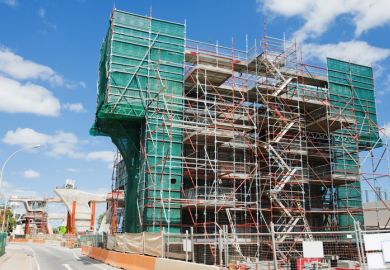Australian researchers are enduring what they describe as their worst year ever, with Covid-induced job shedding bookended by an unprecedented delay in the granting of an estimated A$325 million (£175 million) in research funds.
Applicants are yet to learn the outcomes of three Australian Research Council (ARC) grant schemes, including the flagship Discovery Projects programme, as universities shut down for the summer break.
Grant outcomes are usually communicated in October or early November, allowing successful applicants to recruit support staff and advise research partners before the funding starts flowing in January. This year’s delay – the worst on record – means that even the lucky few whose submissions prove successful, typically less than 20 per cent of applicants, have been left in limbo.
Up to 5,000 researchers and their support staff have begun Christmas holidays without knowing whether they have jobs next year, amplifying the trauma of some 17,300 job losses from Australian universities in 2020 and more this year.
University research and accounts offices have closed, hampering researchers’ efforts to hire staff, prepare contracts or sign deals even if the funding outcomes are revealed in the coming days.
Ironically, two of the stalled programmes – Linkage Projects and the Linkage Infrastructure, Equipment and Facilities scheme – are geared to the federal government policy priority of fostering collaboration between universities and industry.
ARC grant processing has been severely disrupted by the fallout from an ill-conceived ban on mentions of preprints in funding applications. More recently, education minister Alan Tudge – whose role includes approving grant funding applications – stepped aside pending an investigation of misconduct allegations.
ARC CEO Sue Thomas is stepping down at the end of January, five months before her contract expires. Her final message to the sector in the December edition of the council’s ARChway newsletter did not acknowledge the delays.
Late announcements have plagued the sector since 2018, when processes were disrupted by the introduction of a national interest test. That year, grant recipients were not announced until the end of November.
Since then, the ARC has revealed outcomes under an embargo that allows recipients to plan but prevents them from trumpeting their success before official announcements. The embargoes appear to have been abandoned this year.
The Senate has imposed a degree of transparency on grant administration by forcing the minister to disclose recent funding recommendations. But the latest of these disclosures, made the day Mr Tudge stood aside, revealed that only a handful of recommendations had been conveyed to him in November.
Times Higher Education understands that interim education minister Stuart Robert approved scores of funding recommendations about a week after Mr Tudge’s departure. If that is the case, the results have not been communicated to researchers. An administrator at one university has reportedly warned staff not to expect outcomes this year.
Researchers’ complaints to their local MPs elicit a form letter from an ARC bureaucrat. “Your concerns have been noted,” it says. “The expectation for grant outcomes to occur at the same time every year…is not a guarantee. All dates on the ARC calendar are indicative.”
The Group of Eight said the delays were “unprecedented” in the Discovery scheme’s 30-year history. “Researchers prepared and submitted applications almost 12 months ago,” said chief executive Vicki Thomson. “Some projects are scheduled to commence in a matter of weeks.”
She warned that researchers would “move offshore or leave the sector”.
Register to continue
Why register?
- Registration is free and only takes a moment
- Once registered, you can read 3 articles a month
- Sign up for our newsletter
Subscribe
Or subscribe for unlimited access to:
- Unlimited access to news, views, insights & reviews
- Digital editions
- Digital access to THE’s university and college rankings analysis
Already registered or a current subscriber?








